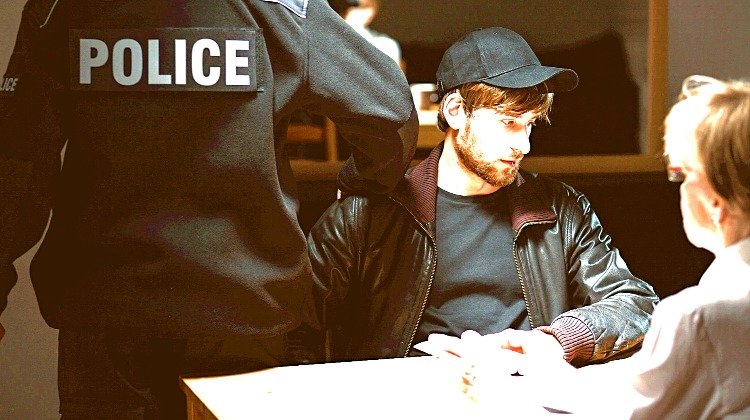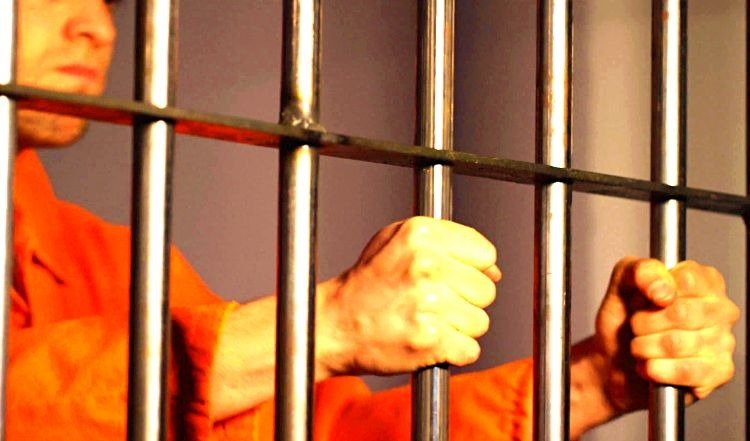.jpg)
The Prisoners Dilemma
A prisoner’s dilemma scenario uses game theory to describe why individuals may decide not to cooperate with each other despite it being in their best interest to do so. For example, a typical prisoner’s dilemma scenario is as follows:
Two criminals are arrested at the scene of a crime and are brought to the police station where they are questioned and interrogated by police detectives. The prisoners are kept in separate rooms and have no means of communicating with each other. Though the police lack enough evidence to convict either of the prisoners on the main charge (ex. murder) they do have enough evidence to convict both of them on a less serious offense (ex. breaking and entering). The police offer both of the prisoners a deal, individually but at the same time, which is to betray the other prisoner in order to receive a lesser sentence.

The typical solutions to this scenario are as follows:
Option 1. If both prisoners betray each other than each of them will receive a large sentence for the crime of murder. (Ex. 8-10+ years in prison).
Option 2. If only one prisoner betrays the other, than the “snitch” will be set free while the other prisoner is convicted on the murder charge. They will receive a sentence of Ex. 12-20+ years in prison.
Option 3. If neither prisoner betrays the other than the cops cannot charge either of them with murder, but both will be convicted of the less serious crime of breaking and entering and both will go to prison for Ex. 2-4 years.

In these scenarios it is in the best interest of both of the prisoners to cooperate with one another and to not snitch. That way both will receive a lesser sentence for the less serious crime and both will be out of prison in only a few short years. However, since the prisoners are kept separate and since they cannot communicate with one another, they do not know what the other prisoner is thinking. While being held in captivity by the police, they are also being told by the detectives that their partner is in the other room snitching on them.
In theory, each prisoner would likely act out of their own self-interest by betraying their partner in hopes that they will be set free and that their partner will be charged with the crime. However, because both prisoners will likely hold the same non-cooperative mindset, each of them will likely snitch on the other and both will be convicted of murder.
Prisoner’s dilemma scenarios are not uncommon and they extend beyond criminal cases to many facets of social life. Once you are aware of the structure of the scenario’s you may start to notice them regularly in your daily life.
A Tragedy of Commons
.jpg)
A tragedy of commons scenario is similar to a prisoner’s dilemma. It describes non-cooperative social behavior in which individuals hold selfish (often short-sighted) views toward common resources, that typically go against the long term interests of a broader group. In these scenarios an individual or sub-group acts selfishly and exploits a shared resource, which in turn has negative consequences for the resource itself and the larger group in general.
An example of a tragedy of commons scenario took place recently in the Northern Atlantic. Cod fishing in Eastern Canada and other parts of the world was a major industry for over 500 years. Cod was considered a common resource for hundreds of fisherman across several global nations. However, starting in the 1970’s and carrying into the 90’s, marine biologists and fisherman alike began to notice that the cod fish were decreasing in the ocean - both in numbers as well as in the overall size of the fish. However, despite concerns, the fishing industry continued to take fish from the ocean at increasing rates, ignoring the science at the time and fighting against any government policy that tried to put limits on the number of fish that could be taken from the ocean.
.jpg)
In 1992 the cod industry collapsed entirely. The fish supply dwindled to near non-existent levels and the government had to suspend fishing of Northern cod. Today, more than 20 years later, the cod fish population has not fully recovered.
The results of this scenario were significant. Cod fish themselves were over fished to near extinction and the entire cod fish industry collapsed. It is estimated that over 400 coastal communities and 35,000 fisherman and plant workers lost their jobs. Similarly, entire communities lost their cultural identity and many families emigrated out of the coastal regions that they grew up in.
Climate Change: A Modern Tragedy of Commons Scenario
.jpg)
The current climate change situation is another example of a modern day tragedy of commons scenario. Atmosphere is a common resource on our planet, one that everyone needs in order to survive. Not only is it the air we breathe but its temperature and make-up also affects our lives in countless ways. Our atmosphere determines whether or not our agricultural crops will survive and it even affects our fresh water drinking supply. Small increases in global temperatures have been linked to increases in forest fire incidents, coastal flooding and even hydrological drought in many global regions.
Scientists have been warning us that the temperature of the planet is steadily increasing and today nearly all scientists are in agreeance that human caused climate change is a real phenomenon. Note: When I say “scientist’s” I am not referring to the lobbyists and special interest consultants who are hired by climate change deniers to pose as scientists and offer self-serving counter data and research.
It appears that the broader climate change ideology has become a tragedy of commons scenario in that some nations are refusing to take action to reduce their carbon and methane emissions. Instead of taking the long term goal of working towards ensuring the survival of the planet, the biosphere, and the human species, they have taken the short sighted and self-interested view of pursuing short term profits and economic growth.
.jpg)
However, if the cod fishing industry taught us anything, it is that short sighted, self-interested views don’t really work out in the end, in that 10 years of economic growth doesn’t really mean much if in year 11 you are dying of starvation because your agricultural crops cannot stand the increased temperature of the planet.
At this point it is not too late though. The actions of individual people do make a difference and people can do their part to reduce carbon emissions. People can reduce their own energy consumption or switch to more sustainable energy sources, they can walk more and drive less, or they can vote for political leaders who hold long term goals of the species above their own short sighted, profit driven self-interests.
Thanks For Reading. Feel free to discuss or share your own ideas on the subject.
Peer reviewed academic sources:
Myers, T. A., Maibach, E., Peters, E. & Leiserowitz, A. (2015). Simple messages help set the record straight about scientific agreement on human-caused climate change: the results of two experiments. Directory of Open Access Journals, 10(3).
Tollefson, J. (2017, November 3). US government report says that climate change is real – and humans are to blame. Nature. International Weekly Journal of Science.
Climate is always changing regardless of our origins
Can you explain further?